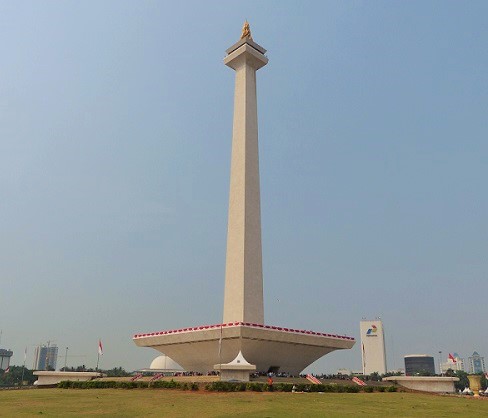Moody’s & JP Morgan Positive about Indonesia’s Fuel Price Hike
International credit rating agency Moody's Investors Service is positive about the subsidized fuel price hike that was conducted by the government of Indonesia on Monday (17/11) as it shows commitment of the government to implement reforms that support the strengthening of the economy, such as curbing Indonesia’s fiscal and current account deficits. Moody’s estimates that these developments are positive for the country’s sovereign rating (now at Baa3/stable) as well as for state-owned energy firm Pertamina (Baa3/stable).

In the early hours of Tuesday (18/11), subsidized fuel prices (gasoline and diesel) were raised by more than 30 percent. Despite global oil prices having declined sharply in recent weeks, President Joko Widodo was firm to increase these prices as it would provide more fiscal room for the government to support economic and social development. Moreover, this move is expected to push the country’s wide current account deficit to a more sustainable level (below three percent of GDP) as less oil imports (to meet ever-growing domestic fuel demand) are required. This would then support the rupiah exchange rate (which has depreciated significantly since May 2013 after the Federal Reserve started to hint at an ending to the US quantitative easing program thus triggering capital outflows). An improved current account balance would also imply that Indonesia is less vulnerable to future external shocks (for example looming higher US interest rates in the second or third quarter of 2015 and slowing economic growth in China which hurts Indonesia’s export performance).
State-owned oil & gas company Pertamina will also feel the positive effects of the fuel price hike as it lowers the company's borrowing requirements and improves its working capital position. Furthermore, potential future losses - arising from insufficient subsidy reimbursements from the central government - are reduced. The government obliges Pertamina to sell subsidized fuels below the market value. The loss it incurs is then reimbursed by the government. Moody’s estimates that when Indonesia would fully scrap fuel subsidies then Pertamina’s annual borrowings would be reduced by around USD $2 billion.
Lastly, Moody’s believes that the fuel price hike will lead to higher inflationary pressures. However, as the country’s central bank (Bank Indonesia) has raised its key interest rate (BI rate) by 25 basis points to 7.75 percent on Tuesday, the credit agency expects that additional inflation will be limited into 2015.
The report ‘Indonesia: Fuel Price Hikes are Credit Positive for sovereign and Pertamina’ can be accessed here (Moody’s subscribers only)
JPMorgan Chase on Indonesia’s Fuel Price Hike
Meanwhile, in a response to the higher subsidized fuel prices of Indonesia, US brokerage firm JPMorgan Chase stated that Indonesian stocks are likely to outperform other Asian stocks in 2015 as the current administration shows commitment to support a stable rupiah exchange rate and boost the economy. This should lead to growing investor confidence despite temporary higher headline inflation.
According to the New York-based company, coal mining, financial and durable goods companies of Indonesia are currently undervalued (based on their earnings per share). Companies that are considered ‘expensive’ now are Indonesian telecommunication and health care firms.
JP Morgan projects that the Indonesian economy will grow between 5 and 6 percent in 2015. However, the company also warns that due to Indonesia’s wide current account deficit, the country is vulnerable to capital outflows amid looming higher US interest rates, zero rates in Japan and Europe, and the weak growth outlook in Japan and Europe.
Indonesia’s benchmark stock index (Jakarta Composite Index, abbreviated IHSG) has reacted positive to the fuel price hike (evidenced by two successive days of considerable gains). This year so far, the IHSG rose around 20 percent. However, on today’s trading day (20/11), market participants seem to engage in profit taking as shortly after opening the index fell 0.49 percent.
Key Findings:
• Higher subsidized fuel prices of Indonesia are considered positive for Indonesia’s sovereign credit ratings, economic fundamentals as well as stock performance
• Indonesia still faces several risks: the still wide current account deficit makes the country more vulnerable to capital outflows amid external shocks such as higher US interest rates and slowing economic growth in China (impacting negatively on the country’s export performance). Other risks include weak growth and zero rates in Europe and Japan

